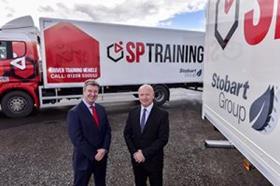Trailblazer apprenticeships have long been mooted as a remedy for road transport’s skills crisis. However a Commons Select Committee has warned they have a worrying lack of focus and will not fill skills gaps unless they concentrate on sectors and regions where training is most needed.
The committee report said while “the Trailblazer programme had done much to increase employer engagement and refocus it on higher level skills”, an annual survey of performance is required to ensure apprenticeships are of a high quality and to more accurately measure the policy’s success.
But while the report called for greater coherence, organisation and a universal standard of quality to ensure all schemes were of a high standard, RHA deputy director of policy Colin Snape said it would instead rather see employers granted influence over how apprenticeships are designed and paid for.
The apprenticeship levy, which is used to fund Trailblazer apprenticeships, came into force this month (CM 6 April). Under the scheme, firms with a payroll of more than £3m are required to contribute the equivalent of 0.5% of this to a pot from which the apprenticeships are then funded.
In the Apprenticeships report, the committee called the levy a “blunt tool in which contributions [the cost of the levy to employers] are unlikely to bear any relation to the skills needs of individual employers”, adding “it is not sufficiently focused on areas of the economy where training is most needed”, and concluded the “implementation has been uneven with repeated delay”.
Targets
Further criticism comes from the FTA, which believes the scheme, as it stands, unfairly disadvantages the devolved nations.
Skills policy development manager Sally Gilson told MT there are better ways to encourage firms to run apprenticeships. “Northern Irish, Scottish and Welsh firms all have to pay into the levy, and while apprenticeships are available in the devolved countries, they won’t necessarily get logistics apprenticeships,” she said.
“In England there is an HGV driver option, and a logistics manager apprenticeship is being developed, but we need all options in all countries.”
Road transport-relevant apprenticeships funded under the Trailblazer scheme include: express delivery operative; express delivery manager (which includes a degree); international freight forwarding operative; international supply chain manager; supply chain operatives; and HGV driver.
Each will last 12 months and have an individual assessment at the end. The content of each apprenticeship is to be agreed between the employer and the apprentice provider, but under the rules of the levy, wages cannot be paid for by the scheme and are the responsibility of the employer.
Gilson said that while the government had work to do to encourage more young people into the sector, the industry had not done a great deal itself.

“The responsibility is with both schools and the sector. Schools need better career advice and the government needs to ensure there is the knowledge available in schools to give students good career advice,” she said.
The government set a target to see three million apprentices employed through the levy across all sectors, but Neil Carmichael MP, chairman of the Education Committee and co-chairman of the Sub-Committee on Education, Skills and the Economy, said: “The government has failed to show how its three million target and levy will create jobs that the economy needs.”
SP Training recently began an apprenticeship scheme with Stobart Group.

MD Tony Higgins said vocational training had traditionally been an issue in the UK, but the situation is improving. “The responsibility lies with the industry and the government,” he said. But there had been a “market failure, but the government needed to show good leadership”, he added.
Higgins said: “The apprenticeship levy is a good initiative, but it’s a pity it’s had to come down to a tax on the industry. Logistics apprenticeships are really positive – for the first time, younger and older people can get good logistics training and it’s important that employers take advantage of it.”
By Grace Wood














